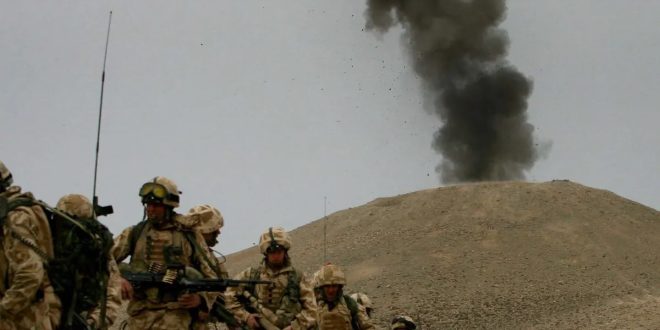British Special Forces sought to hide killings of unarmed afghans

KABUL – In a startling revelation before the Afghanistan inquiry, evidence has emerged suggesting that the British Army’s Special Air Service (SAS) sought to conceal vital information related to the killing of over 50 unarmed Afghans. These findings challenge the perception of the SAS as a highly professional and law-abiding military unit.
The inquiry disclosed that the SAS intentionally deleted crucial data that could have provided essential evidence surrounding the suspicious circumstances of the killings, some allegedly carried out in cold blood. The breach of promises made to the Royal Military Police (RMP) has intensified allegations of serious wrongdoing and attempts to obstruct justice.
Last week, the inquiry uncovered previously unnoticed evidence, revealing that the SAS wiped data from its computers, directly contradicting assurances given to the RMP. Richard Hermer KC, counsel for Afghan victims, argued that the defiance of a clear directive to retain evidence raises suspicions of a criminal attempt to pervert the course of justice in a multiple homicide investigation.
Responding to these allegations, Oliver Glasgow KC, the inquiry’s counsel, acknowledged the gravity of the situation, stating that the data’s forensic wiping appeared to be part of a cover-up aimed at preventing the RMP from recovering evidence related to extrajudicial killings.
During the hearings, SAS soldiers, protected by anonymity and voice distortion, faced questions about their awareness of investigations into allegations of extra-judicial killings. The inquiry revealed that despite being instructed to investigate the data deletion, one SAS witness claimed ignorance of its relevance to the serious allegations.
Accusations of the SAS ignoring RMP directives and obstructing attempts to retrieve crucial data were raised, with a senior RMP officer stating that the SAS had “just dropped data wherever they wanted” and ignored their instructions.
The sensitivity of the dispute over the data prompted the involvement of General Sir Mark Carleton-Smith, then director of Britain’s special forces, who later became the head of the Army. The SAS insisted on conducting an internal investigation into the deleted data, a decision that infuriated the military police.
Previously reported incidents of SAS involvement in the alleged killings of Afghans, including those asleep, have added to the gravity of the situation. Emails from 2011 expressing incredulity about official accounts of SAS night raids and claims of extrajudicial killings have further fueled the controversy.
As the inquiry unfolds, questions persist about the deletion of data during Operation Northmoor, a multiple homicide investigation by the RMP. Tessa Gregory, representing Afghan victims, emphasized the need for answers, highlighting the extraordinary circumstance where UK Special Forces conducted an internal investigation into missing data crucial to a serious criminal inquiry.
Culled from Afghanistan Times

